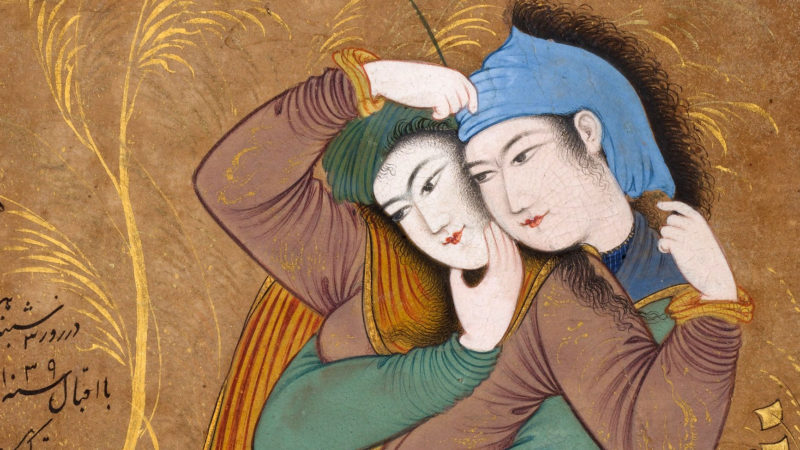He walked in with a century of ruins. Sat beside me. I didn’t turn to look at him but saw his lyrical eyes, sculpted hands. In this version, we spoke in stanzas and played the tanbur and santur, and a hundred strings wasn’t enough to define who we were. Then he turned and asked, Where are you from? He didn’t have an accent anymore. And it struck me that we were at a bar with a pop song playing and not under a tent somewhere in the East. We spoke of travels and adventures. We listened to American bluegrass at another bar. We had two conversations simultaneously. The other was silent.
He fought two wars; one he won, the other he lost. In both he was tortured. He needed to stay invisible. It’s safe there, he said. Safe, I thought, and isn’t that where we deceive ourselves most? I knew then, wherever we went together, one day he would return to that elsewhere, another world on top of him while the noise of construction work outside the window got louder, and my cry amidst the sound of the metal machinery drowned. Yet he’ll hear me, I told myself. He’ll still hear me.
Leave now, I thought. But he moved closer in the unmoored night, thinking, Should I kiss her or just listen to her laugh. And right before we both could withdraw, our lips touched.
A soft cloud and mist kiss, lips sliding into each other as we drew air from our mouths, a dream-like dizzying ecstasy; our tongues turning a dervish twirl, then a slow dance, then a light touch. We took more sips of air from each other’s mouths before locking them together intensely, swaying from what we knew, a tremble running through us.
That’s the thing about combat—we look for the same cracks in others. We wait at the edge of time for the kiss that tells us something about ourselves that we long to know. A fragile revelation passed through us. What’s strangest in us may be what’s truest.
I ran my hands through his hair as if counting the seconds of my life.
Now, when I remember him moving closer, I only see the beginning. I took his lips feverishly into mine, and in that version, we kissed without hesitation. The nightingale recited a verse we found in Shiraz or Mount Sikaram. Except, we were never there together. And I never told him that the road is a body, that there are lives that bewilder a kiss, and a kiss capable of loving an entire life.
The Kiss is a bimonthly series curated by Brian Turner.
The Kiss: Intimacies from Writers is available from Norton in February 2018.

